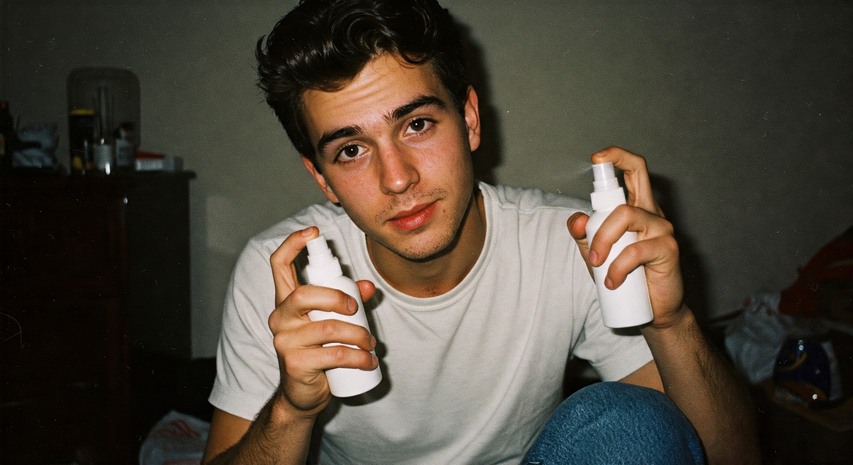Hypochlorous acid in Acne: is It worth the hype?

Hypochlorous acid (HOCl) has recently become a trending skincare ingredient, particularly in the world of acne treatment. But while it may seem like a promising new solution, is it really the best choice for acne, or are there better alternatives?
What is Hypochlorous Acid?
HOCl is naturally produced by the body to fight infections. It works by attacking and destroying harmful bacteria, including Propionibacterium acnes, the bacteria responsible for acne breakouts. Its antimicrobial and anti-inflammatory properties have made it popular for a variety of skin conditions, and some people have started using it in over-the-counter (OTC) sprays as part of their acne regimen.
The Problem with HOCl for Acne
While HOCl has potential benefits, it comes with significant limitations. The biggest issue is stability. HOCl is highly sensitive to environmental factors like light, temperature, and air, which can quickly degrade its effectiveness. This means that many OTC HOCl products may lose their potency by the time they reach the consumer, especially if not stored properly.
Another concern is the lack of comprehensive studies on HOCl’s use for acne. Although there are a few small studies showing some improvement in acne lesions, HOCl has not been rigorously tested like more established treatments. For example, while one study suggested that HOCl could be as effective as benzoyl peroxide in managing acne, benzoyl peroxide has decades of clinical research backing its safety and efficacy. HOCl is still relatively new in this arena, and we simply don't know enough yet about its long-term effects.
Proven Acne Treatments: Why They’re Better
Fortunately, there are already several highly effective, FDA-approved acne treatments that have been extensively studied and shown to deliver real results. Two of the most common are:
- Benzoyl Peroxide: This is one of the most trusted acne treatments available. It kills acne-causing bacteria, reduces inflammation, and prevents new breakouts. Benzoyl peroxide is widely available in different strengths and formulations, and it has a long history of safe, effective use.
- Salicylic Acid: Known for its ability to exfoliate and unclog pores, salicylic acid is especially effective for blackheads and whiteheads. It’s commonly found in cleansers and spot treatments and has been a mainstay in acne treatment for years.
Both of these treatments have been rigorously tested and are supported by substantial clinical data. Unlike HOCl, their stability and effectiveness have been proven over time, making them far more reliable choices for treating acne.
Why HOCl Isn’t a First-Line Treatment
While HOCl might offer some benefits, especially due to its anti-inflammatory properties, it shouldn't be your go-to for acne treatment. Its effectiveness can vary significantly depending on how it’s stored and handled, and the research backing its use for acne is still limited. Until more data becomes available, it's best to stick with well-researched, FDA-approved options like benzoyl peroxide and salicylic acid.
That said, HOCl may have potential as an adjunctive treatment, meaning it could be used alongside traditional acne therapies. Since it’s safe and well-tolerated, adding it to your routine likely won’t hurt—but it shouldn’t replace more proven treatments.
Conclusion
Hypochlorous acid might sound like an exciting new solution for acne, but its effectiveness remains uncertain. Given the availability of well-established treatments like benzoyl peroxide and salicylic acid, it's wiser to stick with these proven options while keeping HOCl as a secondary, supportive treatment if needed.
References
- Menta N, Vidal SI, Friedman A. Hypochlorous Acid: A Blast from the Past. J Drugs Dermatol. 2024;23(10):909-910. Published online September 24, 2024.
- Boecker D, Zhang Z, Breves R, et al. Antimicrobial efficacy, mode of action, and in vivo use of hypochlorous acid (HOCl) for infection prevention. GMS Hyg Infect Control. 2023;18.
- Natarelli N, Nong Y, Maloh J, et al. Hypochlorous acid: applications in dermatology. J Integr Derm. 2022.
- Pelgrift RY, Friedman AJ. Topical Hypochlorous Acid (HOCl) as a Potential Treatment of Pruritus. Curr Derm Rep. 2013;2(3):181-190.
- Tirado-Sánchez A, Ponce-Olivera RM. Efficacy and tolerance of superoxidized solution in the treatment of mild to moderate inflammatory acne. J Dermatolog Treat. 2009;20(5):289-292.
- Pastar I, Stojadinovic O, Yin NC, et al. Epithelialization in wound healing: a comprehensive review. Adv Wound Care. 2014;3(7):445-464.
To find the right acne treatments for your unique skin, take the free skin assessment by clicking here.



